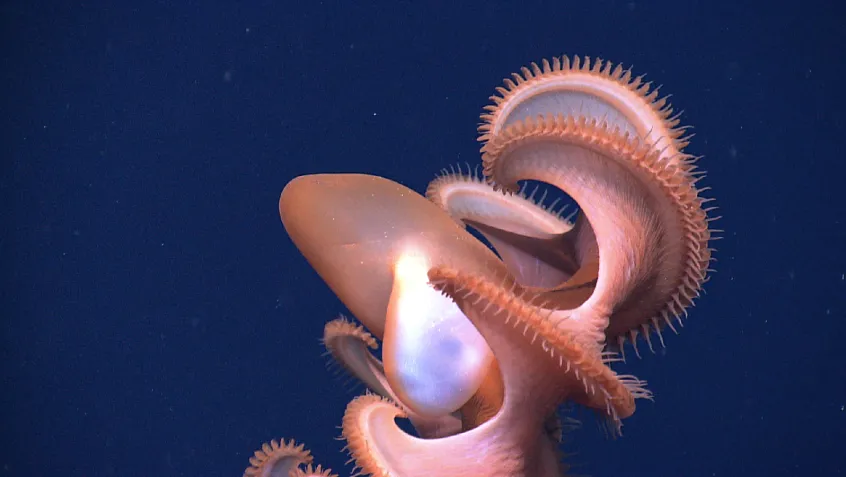
Squids, cuttlefish, octopi—these sea creatures, known as cephalopods, are famous for their association with sea monsters, their supposed intelligence, and as calamari and other seafood. They also may serve as indicators of ocean health, as they can be sensitive to changing ocean conditions.
What is bioaccumulation?
These sea creatures are predators—some even use camouflage to blend in to surroundings to help them better stalk, hunt, and capture fish and other small prey. Because of their role as predators, they are also threatened by the buildup of pollutants, or toxins, in the food chain—a process known as bioaccumulation. Their prey, such as fish and other shellfish, consume and retain the toxins, which have an amplified impact as the toxins move up the food chain. This means cephalopods are potentially even more vulnerable to these toxins, which can come from pollution on land.
Land pollution can lead to an excess of nutrients in the oceans (called nutrient pollution) which fuel growth of single-celled organisms called algae. These intense growths of algae, called algal blooms, can lead these organisms to take over the water surface. When the algae die and decompose, they use up lots of the oxygen in the water, leading to patches of ocean where oxygen is dangerously scarce, called dead zones. Along with most animal life in the sea, cephalopods need oxygen too, and these dead zones deprived of oxygen can damage cephalopod development and cause range shifts, which may harm the cephalopods over the long term.
Nutrient pollution can also cause the ocean to become more acidic. Acidic oceans are a problem for cuttlefish which have a unique internal shell called a cuttlebone. These hard parts of their anatomy can be degraded by acidifying oceans, a process known as ocean acidification. Even if other cephalopods can somehow compensate for ocean acidification, much of their prey—shell-forming creatures like crabs and other shellfish—may not. While not the only cause of ocean acidification, nutrient pollution can severely exacerbate the problem.
You can help out cephalopods and other ocean life by reducing pollution to the oceans, much of which comes from sources like those near your home and community. You can do your part to reduce pollution in your communities by:
- Limiting fertilizer use, which can lead to the buildup of nutrients in the ocean;
- Not dumping paint, oil, soap, or other household chemicals into street gutters or storm drains; and
- Using phosphate-free cleaners, detergents, and soaps to avoid contributing to nutrient pollution.
Check out this Safer Choice⯠search engine⯠from EPA to make environmentally friendly shopping easier!
Sources:
- Drexler, John, Fisher, Nicholas, Henningsen, Gerry, Lanno, Roman, McGreer, Jim, and Keith Sappington. 2003. "Issue Paper On The Bioavailability and Bioaccumulation of Metals." https://ofmpub.epa.gov/eims/eimscomm.getfile?p_download_id=379032
- O'Brien, Caitlin Elizabeth, Katina Roumbedakis, and Inger Eleanor Winkelmann. 2018. "The current state of cephalopod science and perspectives on the most critical challenges ahead from three early-career researchers." Frontiers in Physiology 9: 700. https://doi.org/10.3389/fphys.2018.00700
- University of Hawaii Manoa. 2018. "Nutrient Pollution Makes Ocean Acidification Worse for Coral Reefs." Accessed June 22. https://www.eurekalert.org/pub_releases/2018-06/uoha-npm060518.php
- US EPA. 2017. “Effects of Ocean and Coastal Acidification on Ecosystems.” Accessed on June 22, 2018. https://www.epa.gov/ocean-acidification/effects-ocean-and-coastal-acidification-ecosystems
- US EPA. 2017. “Sources and Solutions.” Accessed June 22, 2018. https://www.epa.gov/nutrientpollution/sources-and-solutions


